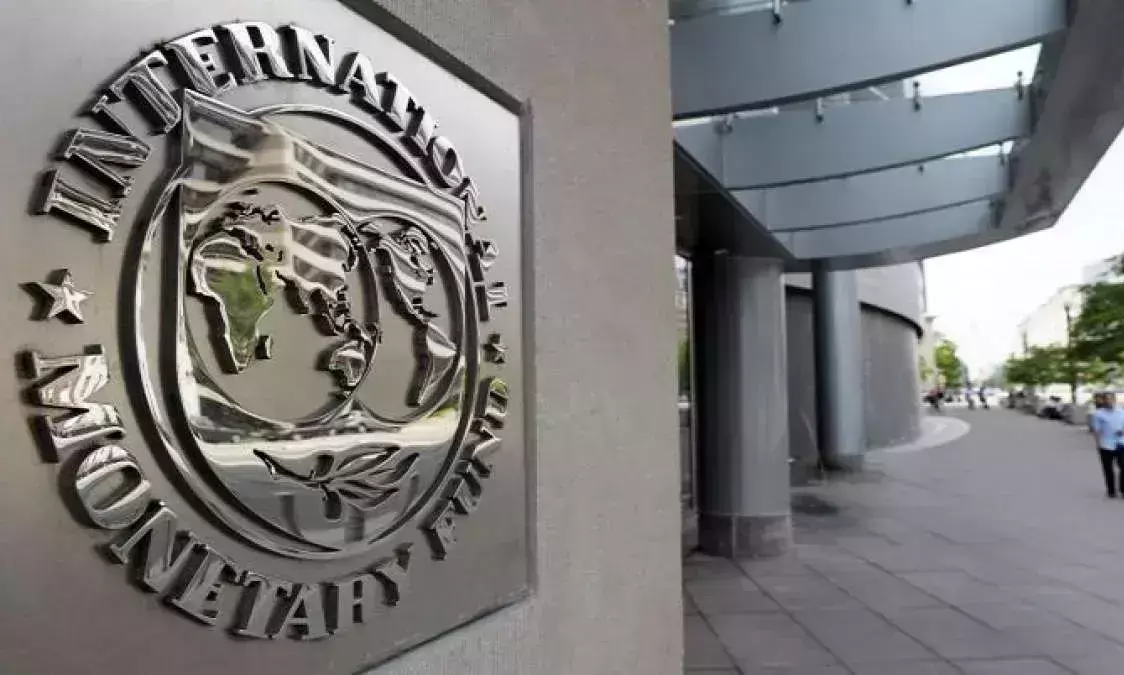
IMF slashes global growth forecast over Trump's tariffs
text_fieldsWashington: On Tuesday, the International Monetary Fund (IMF) cut its global growth forecasts, citing the impact of the recent tariffs imposed by the United States earlier this month.
The IMF has warned that the rapid intensification of trade tensions and heightened policy uncertainty are likely to significantly hinder global economic activity.
In its latest report, the IMF revised its global growth forecast for 2025 downward by 0.5 percentage points to 2.8% and for 2026 by 0.3 percentage points to 3%.
Additionally, the agency noted that inflation is expected to decline at a slower pace than previously anticipated, with projections of 4.3% for 2025 and 3.6% for 2026, largely due to the impact of tariffs.
The report projected that India’s economy would expand by 6.2% in the financial year 2025-26, reflecting a 0.3 percentage point reduction from the January forecast.
For the following financial year, 2026-27, growth is expected to reach 6.3%, which is also a downward revision from the earlier estimate of 6.5%.
US economic growth will come in at just 1.8 per cent this year, down sharply from its previous forecast of 2.7 per cent and a full percentage point below its 2024 expansion.
The IMF doesn't expect a US recession, though it has raised its odds of one this year from 25 per cent to 37 per cent.
The forecasts are largely in line with many private-sector economists' expectations, though some do fear a recession is increasingly likely.
Pierre-Olivier Gourinchas, Director of the Research Department at the International Monetary Fund (IMF), remarked that the world is entering a new era, with the global economic system that has functioned for the past 80 years undergoing a major reset.
“Since late January, many tariff announcements have been made, culminating on April 2, with near-universal levies from the United States and counterresponses from some trading partners,” Gourinchas said.
“The US effective tariff rate has surged past levels reached more than 100 years ago, while tariff rates on the US have also increased.”
While global growth remains well above recession levels, all regions have been hurt this year and next, Gourinchas added.
(with PTI inputs)












